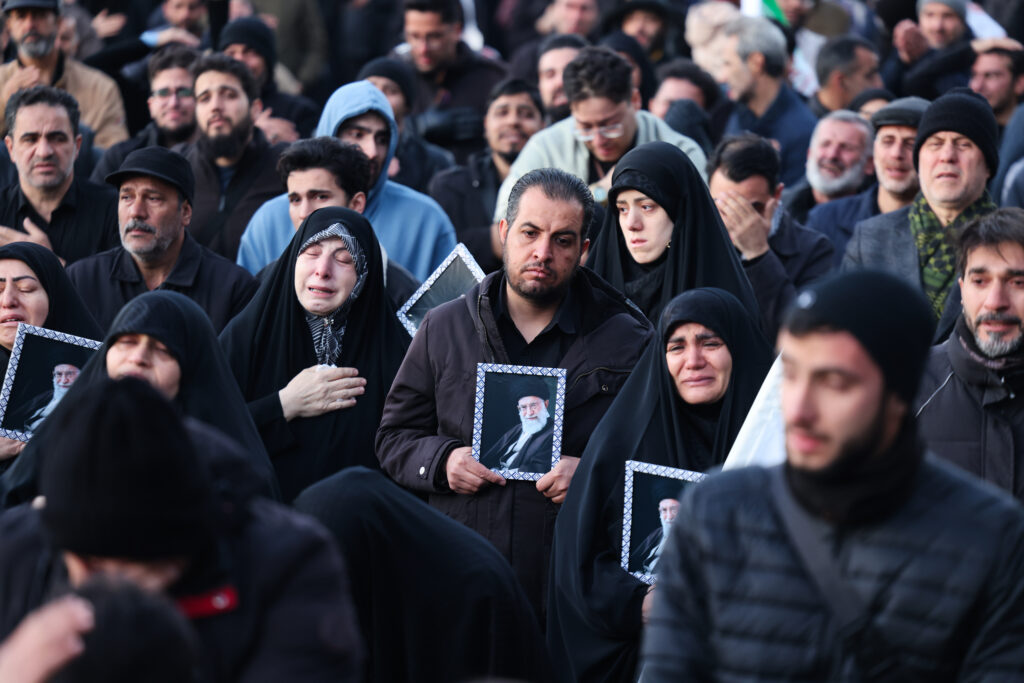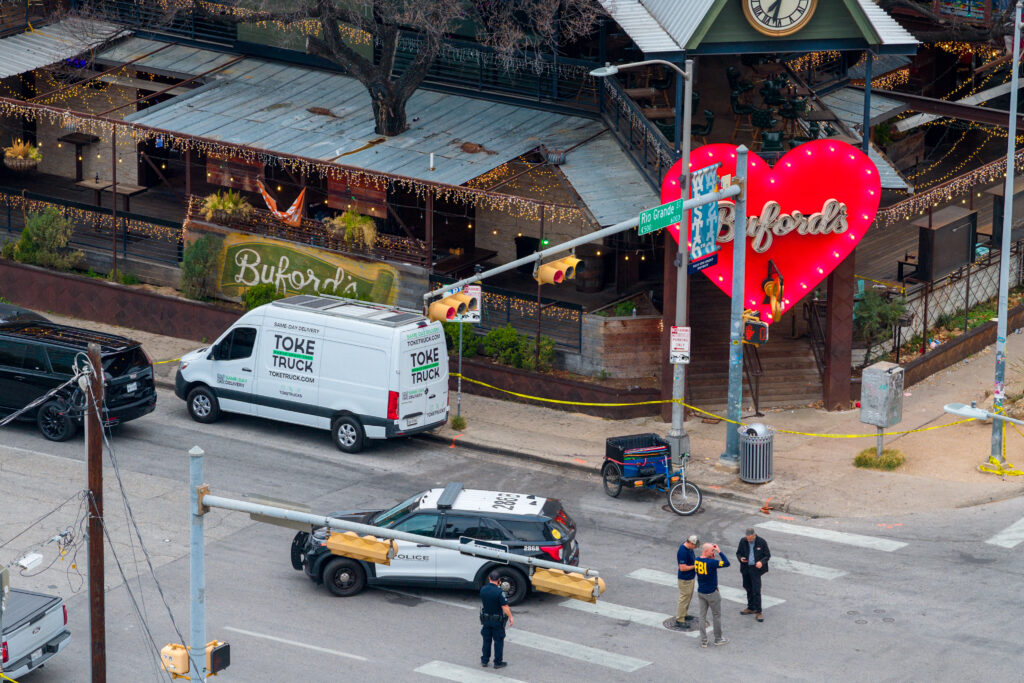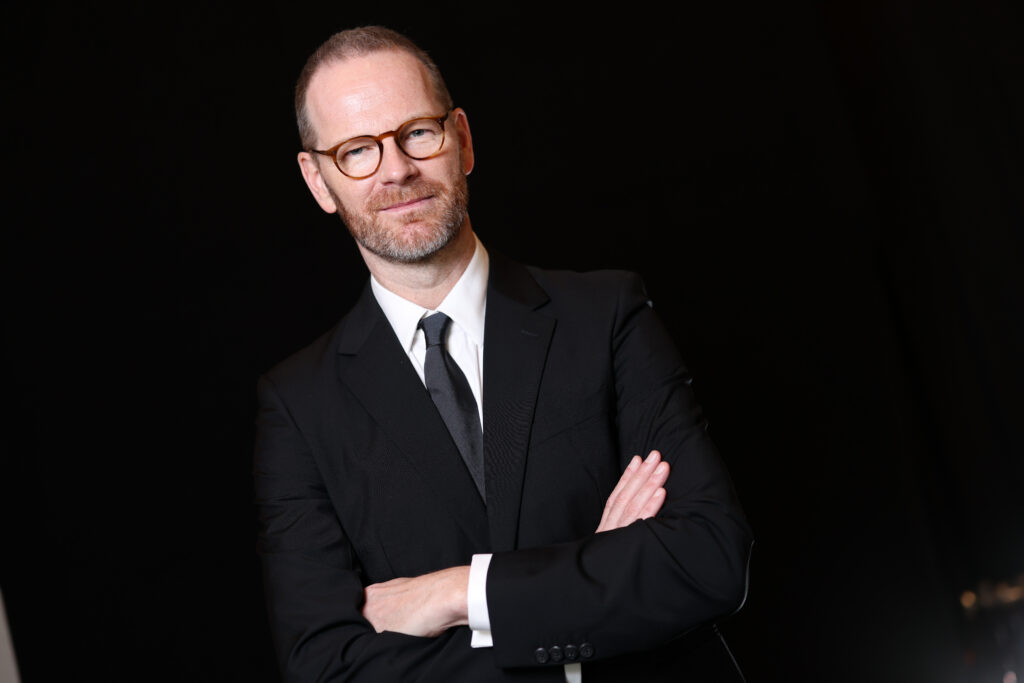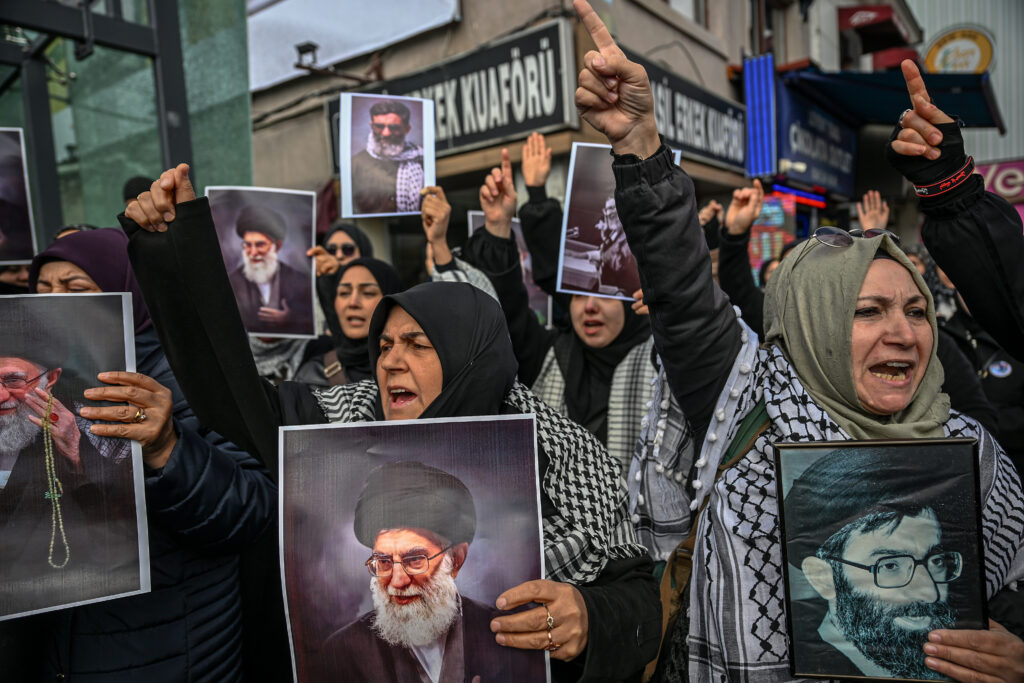US President Donald Trump vowed to avenge the deaths of three US servicemembers as he called on Iranians to rise up against their government and said the war could last for weeks.Israeli Prime Minister Benjamin Netanyahu vowed that air strikes against Iran would intensify in the coming days, while Trump said he would be talking to Iranian leaders, without specifying when.The European Union has warned of the cost to the Middle East of a long war, and said it was reinforcing its naval mission in the Red Sea.Here are the latest developments:- Maersk suspends Strait of Hormuz transit -Container shipping company Maersk said it was halting passage through the Suez Canal and the Strait of Hormuz for “safety” reasons.The Danish group was the latest of several shipping groups to make similar announcements after Iran’s Revolutionary Guards declared the strait closed on Saturday.- Gulf states vow to defend themselves -Gulf states vowed to defend themselves against Iranian attacks, including by “responding to the aggression” if need be, after the Gulf Cooperation Council convened via video-link to formulate a unified response.- Seven injured in Jerusalem -Seven people were injured in the Jerusalem area following the latest salvo of missiles fired from Iran, Israeli firefighters said.- UK allows US to use bases -British Prime Minister Keir Starmer said he had agreed to let the United States use UK bases to fire “defensive” strikes aimed at destroying Iranian missiles and their launchers.But in a video address posted to social media, he added: “We were not involved in the initial strikes on Iran and we will not join offensive action now.- EU reinforces naval mission -The EU is to reinforce its naval mission in the Red Sea with additional vessels as Iran’s retaliation to US-Israeli strikes threatens maritime traffic, a European diplomat said.Two new French ships will join the EU’s Aspides mission, bringing to five the number of warships taking part, the diplomat told AFP.- Trump vows to avenge US military deaths -Trump vowed to avenge the deaths of three US soldiers killed during US operations against Iran, while warning that more casualties were likely.The US president also called on Iranians to rise up, saying “America is with you,” and warned the country’s Revolutionary Guards to surrender or face “certain death.”- War could last ‘four weeks’ -Trump said he envisaged a four-week military operation against Iran, where US and Israeli strikes have killed the country’s supreme leader and crippled its defence capabilities.”It’s always been a four-week process. We figured it will be four weeks or so,” he told British newspaper the Daily Mail during a round of interviews.”As strong as it is, it’s a big country, it’ll take four weeks — or less,” Trump said.- Revolutionary Guards HQ ‘destroyed’ -The US military announced it had destroyed the Revolutionary Guard (IRGC) headquarters. “America has the most powerful military on earth, and the IRGC no longer has a headquarters,” the US Central Command, or CENTCOM, said in a statement, adding that the strike had occurred on Saturday.Israel’s military meanwhile said it “struck dozens of the regime’s military command centres, including headquarters belonging to the Islamic Revolutionary Guard Corps (IRGC), intelligence headquarters, IRGC Air Force command centres, and internal security headquarters.”- EU warning -The EU’s top diplomat warned that the Middle East “stands to lose greatly from any drawn-out war”, urging Iran to refrain from indiscriminate attacks in retaliation to US-Israeli strikes.”The events unfolding in Iran must not lead to an escalation that could threaten the Middle East, Europe and beyond, with unpredictable consequences,” Kaja Kallas said, speaking on behalf of the EU’s 27 nations after an emergency meeting of foreign ministers.- Tehran police station hit -Iranian media reported that a police station in a city on the outskirts of Tehran had been hit, killing an unspecified number of people, with others reportedly trapped under debris.”According to initial reports, a number of citizens were martyred and some were trapped under the rubble,” the Tasnim news agency reported. – Tehran hospital struck -Iranian news agency ISNA reported that Gandhi hospital in northern Tehran had been targeted by strikes.The Fars and Mizan agencies published a video, presented as being from inside the facility, showing debris on the floor among wheelchairs.- UAE withdraws ambassador -The United Arab Emirates shut its embassy in Iran and recalled its ambassador, following a barrage of Iranian attacks targeting the Emirates. The decision was made in response to “the blatant Iranian missile attacks that targeted the country’s territories, which constitute aggressive assaults that struck civilian sites, including residential areas, airports, ports, and service facilities, and exposed defenceless civilians to danger.”- Deadly Pakistan protests -At least 17 people were killed across Pakistan as protesters outraged over the death of Iran’s supreme leader took to the streets, some attempting to storm US diplomatic buildings.In the Pakistani megacity of Karachi, an AFP journalist witnessed hundreds of pro-Iranian protesters trying to enter the US consulate, prompting clashes with police.- UAE markets closed -Dubai’s and Abu Dhabi’s stock exchanges will be closed at least for Monday and Tuesday due to the ongoing conflict in the region, the United Arab Emirates’ regulator announced.The Emirates have been hit by Iranian strikes since Saturday in response to the joint Israeli-US attacks.- First US casualties -Three members of the US military have been killed and five others seriously wounded in the operation against Iran, the Pentagon said, the first American deaths in the campaign that killed the Islamic republic’s supreme leader.- Strikes to ‘intensify’ -Netanyahu vowed to intensify strikes on Tehran in the coming days as the army announced it had called up 100,000 reservists. “Our forces are now striking at the heart of Tehran with intense power, and this will only escalate in the days ahead,” he said in a video statement.- Trump says Iranians ‘want to talk’ -Trump said he would be talking to Iranian leaders but was vague on the timing, noting that much of the country’s leadership was dead.”They want to talk, and I have agreed to talk, so I will be talking to them. They should have done it sooner,” Trump was quoted as saying by The Atlantic.He told Fox News that 48 Iranian leaders had been killed and that the results of the offensive so far were “very positive”.- Iran kills 9 in Israel -Iran strikes on Israel killed at least nine people in the city of Beit Shemesh, first responders said. Another 28 were wounded, the Magen David Adom emergency service said.In the UAE, the defence ministry said three people had been killed and 58 wounded since Iran’s strikes began Saturday. In Kuwait, one person has been killed and 32 wounded since the start of Iran’s retaliation campaign, the health ministry said.- Sinking oil tanker -Two ships were attacked in the Strait of Hormuz, one off Oman and the other off the UAE, the British maritime security agency UKMTO said.Iranian state television said an oil tanker was struck and was sinking after trying to “illegally” pass through the strait. burs-wd/bgs







